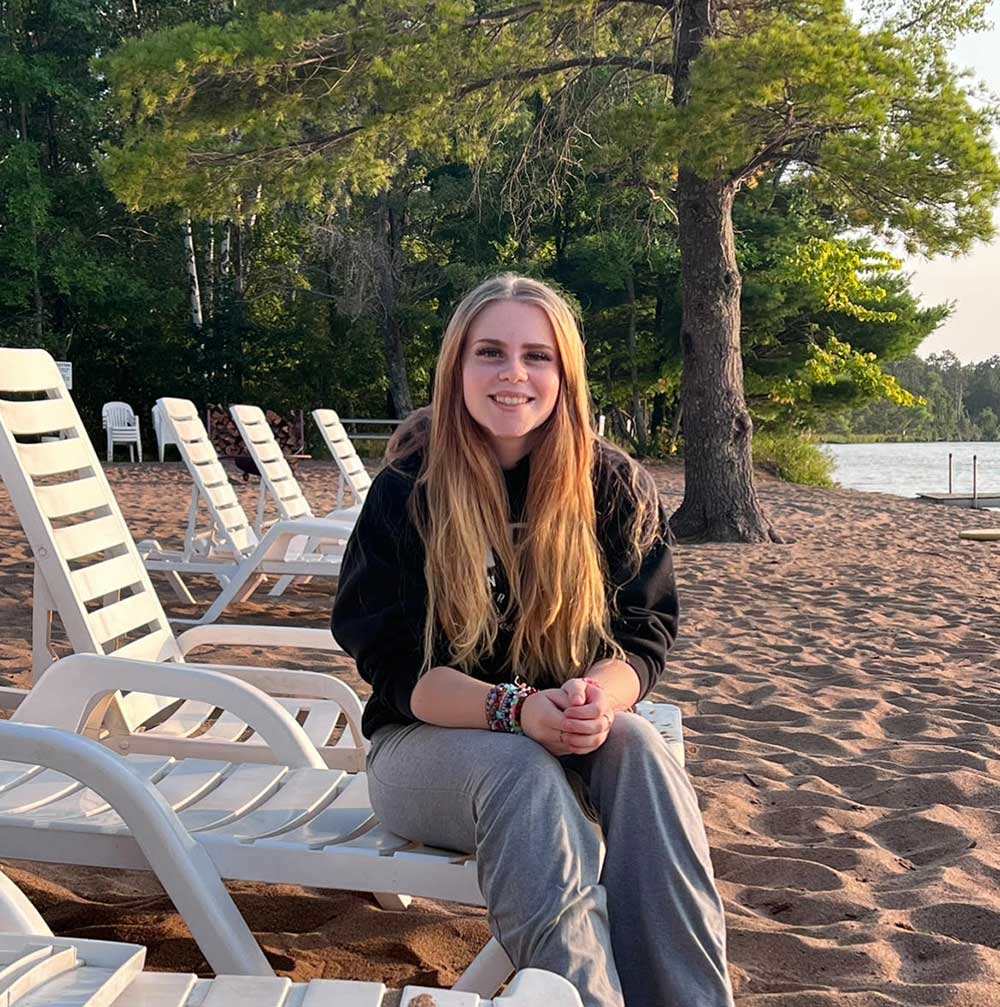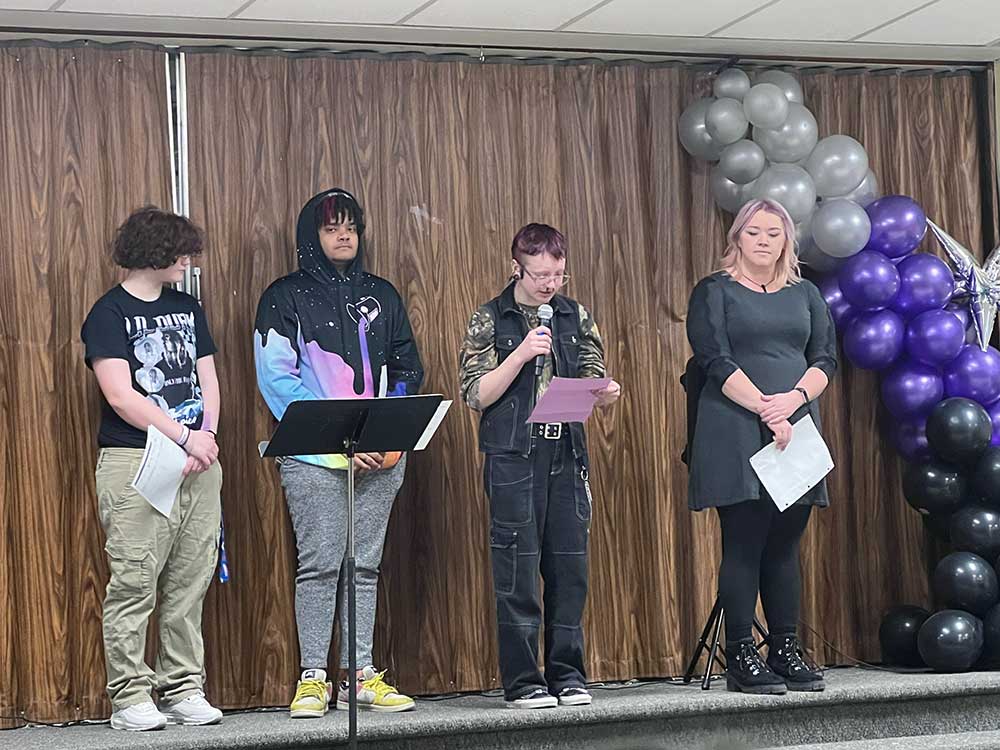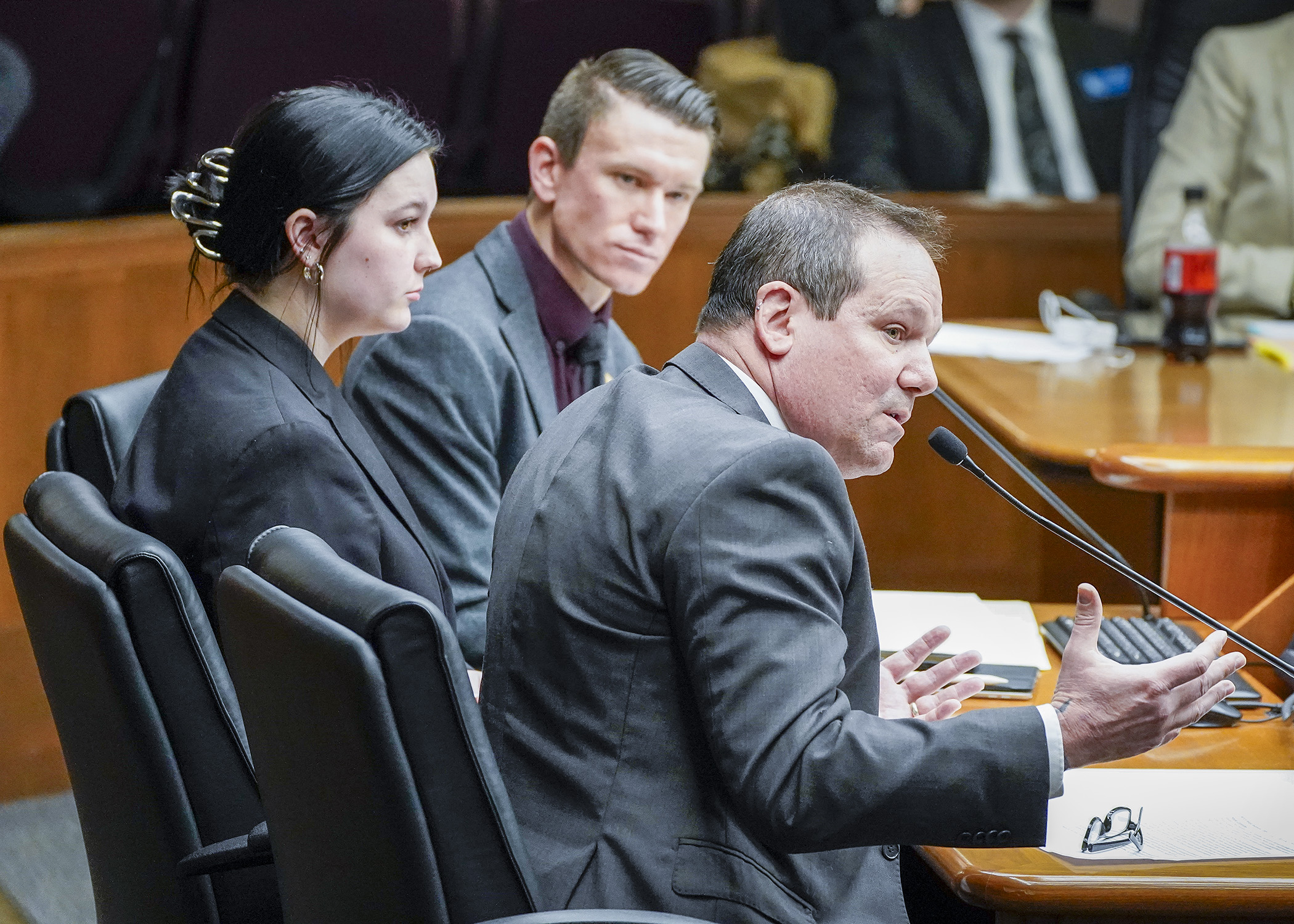It came to the point that Maximilian Marcy decided it was finally time to get clean and stay clean.
The heady mix of marijuana, booze and uppers were taking a serious toll on the Luther College freshman from Belle Plaine, Minn. He heard about Augsburg College’s residential Step-Up program for college students in recovery and transferred.
 Sixteen years now in recovery, Marcy praises the now 20-year-old college program for putting him on the road to sobriety and success.
Sixteen years now in recovery, Marcy praises the now 20-year-old college program for putting him on the road to sobriety and success.
“Such programs are needed,” said Marcy, 36, a married father of three and director of investor relations and international finance for Vadnais Heights-based HB Fuller.
“College is tough for people who struggle with addiction and also have some sort of self-doubt and trying to find out who you are,” Marcy added during a phone chat last week. “It’s hard enough in college to try to fit in, let alone struggle with an addiction.”
Doctors, lawyers, and yes, a high-ranking executive at a major corporation in the Twin Cities area. Those are some of the Augsburg alumni from the largest collegiate residential recovery program in the nation.
“At one point they went through life unemployable,” Toby Piper LaBelle, a program designer and longtime volunteer, told an audience of AmeriCorps officials from Minnesota and 17 other states at a seminar hosted by the Hazelden Betty Ford Foundation in St. Paul.One of the volunteer service’s major funding priorities this year is learning about and working with the recovery community in reducing or preventing prescription-drug and opioid abuse.
It was an eye-opening primer for me as well as for many in the audience. I never realized during my college partying and occasional binge-drinking days that there were fellow students or friends in recovery or grappling with addiction. I was too busy trying to drown and numb my own issues. Was I indirectly an enabler? Did I tease them for not taking part?
“They were probably not the people you would want to have even watch anything because you are afraid they will lie, cheat and steal,” LaBelle, who has been in recovery for 25 years, told audience members. “After some time, they blossom into these wonderful people … and these students want to give back. The DNA of recovery is to give back.”
The collegiate recovery community has been slow to spread since Augsburg’s program got off the ground 20 years ago. Of the thousands of colleges and universities, there are only about 42 such programs operating in the country. Given the recent opioid epidemic that has hit the 18-to-24 age group, one would think more schools would embrace the concept.
“It has to be the mission of the college,” LaBelle said. Colleges “are dealing with different issues. There’s also the stigmatization of having ‘addicts’ on campus. Ninety-three percent of our students who go into the program stay sober.”
Manford Foster, 21, an Augsburg junior from Alexandria, Minn., intimately knows that high schools as well as colleges are “abstinence hostile” environments.
He abused painkillers and marijuana when he was 15 and tried mightily to kick the substance dependency on his own while in high school.
“I tried to stay sober, but hung out with the same people,” he said. He began recovery two years later but was apprehensive about pursuing higher education.
“You think of college and you think of movies like ‘Neighbors,’ where people are drinking all the time,” Foster said. “That’s terrifying if you are in recovery because you then think, ‘Oh, I’m going to become an outcast because I don’t drink, and then I might relapse.’”
One of 100 recovering students who live together in a dorm complex on campus, Foster now has the confidence to attend events where drinking takes place.
“I found that I have more fun at parties because I’m sober and (people) can understand what I am saying,” he quipped.
Mike Durchslag runs P.E.A.S.E. Academy in Minneapolis, the oldest recovery high school in the nation and among six in the state.
One of the school’s graduates, he told the audience, just wrapped up her third year of residency at a university medical school. He has seen opiates and heroin ruin and take lives through the decades, from the low-income inner-city neighborhoods during the 1970s to now the suburbs, exurbs and rural areas of America.
“Xanax is king right now, and meth appears to be creeping back up,” he told me.
He strongly believes the challenge of recovery and staying sober is critical at the high school level.
“If we were to ask an adult who is coming out of treatment, as part of their relapse-prevention recovery plan, ‘Hey, why don’t you go down and spend six and a half hours at your favorite bar, five days a week but don’t drink,’ we would look at them like they are absolutely crazy,” said Durchslag, the school’s executive director. “But in a strange way we ask adolescents to do that every single day, going back to the same school, the same influences and the same stresses.”
James Ackmann, 18, a senior at the 50-student school, echoed Durchslag’s take.
After treatment, “I went back to the old school,” Ackmann told the audience. “I kept using for six months before I was hospitalized. To me, I had such a fixation on drugs that everything else did not matter.”
Ackmann transferred to Pease and is now 10 months sober.
“I have friends in recovery who are better than any friends I ever had,” he said. “I have dreams. I know now what I want to do with my life and the person I want to be. Most importantly, I no longer wake up every morning thinking I wish I was dead.”
Foster and Marcy believe the close connection among recovery peers is the best part of the college program.
“It’s being able to be with and go to like-minded people in times and say, ‘God, I have the same thoughts as you do,’” Marcy said. “It’s a safe place and allows kids who maybe lost their way to have a second chance and live a life they were meant to live and give back.”
Rubén Rosario can be reached at 651-228-5454 or at rrosario@pioneerpress.com. Follow him at twitter.com/nycrican.
By: Digital First Media





